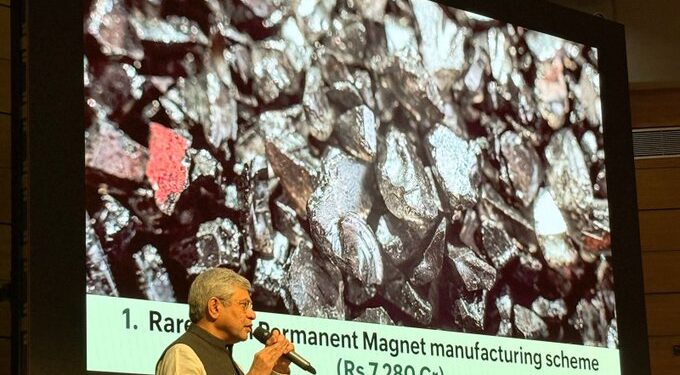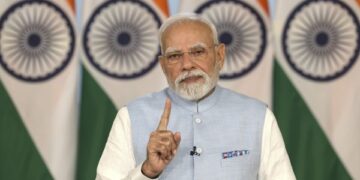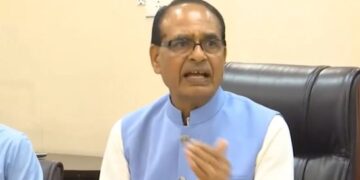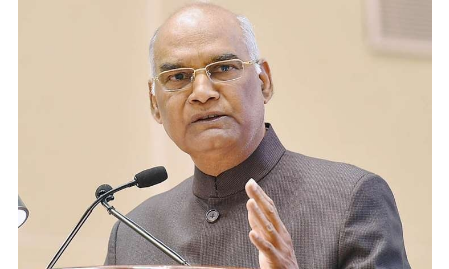New Delhi: The government on Wednesday approved a Rs 7,280 crore scheme to promote manufacturing of rare earth permanent magnets, a move which would help reduce India’s dependence on China.
Rare earth magnets are vital for a number of sectors like electric vehicles, renewable energy, electronics, aerospace, and defence applications.
The ‘Scheme to Promote Manufacturing of Sintered Rare Earth Permanent Magnets (REPMs)’ was approved at a Cabinet meeting chaired by Prime Minister Narendra Modi.
“The scheme will promote manufacturing of rare earth permanent magnets. The aim is to create capacity of 6,000 MTPA (metric tonne per annum),” Information and Broadcasting Minister Ashwini Vaishnaw told reporters here.
The scheme will support the creation of integrated manufacturing facilities, involving conversion of rare earth oxides to metals, metals to alloys, and alloys to finished magnets.
It envisions allocating the total capacity to five beneficiaries through a global competitive bidding process. Each beneficiary will be allotted up to 1,200 MTPA capacity. The minister said that the detailed guidelines will be released soon.
The total duration of the scheme will be seven years from the date of award, including a 2-year gestation period for setting up an integrated magnets manufacturing facility, and 5 years for incentive disbursement on the sale of the product.
The total financial outlay of the scheme is Rs 7,280 crore, comprising a sales-linked incentives of Rs 6,450 crore on REPM sales for five years and capital subsidy of Rs 750 crore for setting up 6,000 MTPA of REPM manufacturing facilities.
Each beneficiary will be allotted up to 1,200 MTPA of capacity.
Driven by the rapidly growing demand from electric vehicles, renewable energy, industrial applications, and consumer electronics, India’s consumption of REPMs is expected to double by 2030 from 2025.
At present, India’s demand for these goods is met primarily through imports from countries including China.
“With this initiative, India will establish its first ever integrated REPM manufacturing facilities, generating employment, strengthening self-reliance,” an official statement said.
This initiative is a step toward strengthening the domestic REPM manufacturing ecosystem and enhancing competitiveness in the global markets.
By fostering indigenous capabilities in REPM production, the scheme will secure the REPM supply chain for domestic industries, it added.
The announcement is important as restrictions imposed by China, who is the major supplier of these magnets, has created shortage and impacted manufacturing in sectors such as automobiles and electronics.
China controls over 90 per cent of the global processing capacity for magnets, used across multiple sectors including automobiles, home appliances and clean energy.
The Chinese government has put restrictions, with effect from April 4, mandating special export licences for seven rare earth elements and related magnets.
Vaishnaw said India’s requirements for permanent magnets are constantly increasing. India can look at collaborating with countries including Australia and Japan for this.
At present, India requires about 4,000-5,000 MTPA rare earth magnets per year.
“Both public and private sector companies can participate in this,” he said adding companies will be selected through a transparent mechanism.
When asked why India is entering into this sector when certain countries are withdrawing from it, the minister said it is a strategic sector and “we have to be present” as it is an important negotiating factor now a days.
India has an estimated 6.9 million tonne of rare earth element reserves.






